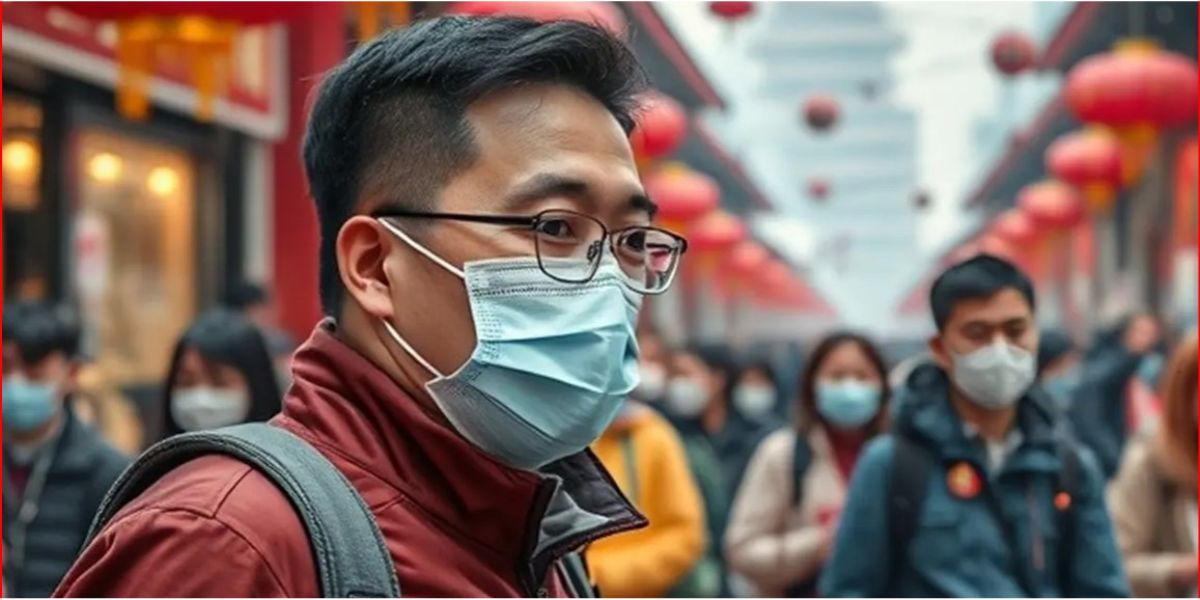Kapanlagi.com - The Indonesian public was recently shocked by reports of the discovery of Human Metapneumovirus (HMPV) cases domestically. The virus, which affects several children, has certainly raised concerns among parents. However, Health Minister Budi Gunadi Sadikin emphasized that the public does not need to panic, as HMPV is not a new virus that suddenly appeared.
In his explanation, the Minister stressed that the HMPV virus has characteristics similar to the common flu and has been known since 2001. Nevertheless, attention to vulnerable groups such as children and the elderly remains very important.
The news about the HMPV virus circulated after reports of an increase in cases in China. However, the Indonesian Ministry of Health confirmed that this information is not entirely accurate. The rise in cases in China is more related to seasonal flu, not HMPV.
So, what are some interesting facts about this virus and how can we protect ourselves? Let's take a closer look!
1. What Is HMPV Virus?
Human Metapneumovirus (HMPV) is a respiratory virus that was first detected in 2001 and has since become a concern in the medical world. This virus often causes flu-like symptoms, such as cough, runny nose, fever, and shortness of breath.
Health Minister Budi Gunadi Sadikin revealed that the human immune system generally can recognize HMPV, which is indeed already present in Indonesia. Data from several laboratories indicate that a number of children have been infected with this virus.
Although HMPV is more likely to affect children, the elderly, and those with weakened immune systems, the good news is that the majority of these infections do not require special medical treatment and can resolve on their own.
2. How Does This Virus Spread?
The transmission of the HMPV virus is similar to the way other flu viruses spread, namely through droplets or saliva sprays from an infected person. When someone coughs or sneezes, these virus particles can float in the air and infect those around them.
Dicky Budiman, an epidemiologist from Griffith University Australia, added that this virus can also spread through physical contact, such as shaking hands or touching contaminated objects.
Although this virus tends to cause mild infections in people with healthy immune systems, vulnerable groups such as children and the elderly still need special attention.
3. Comparison of HMPV with COVID-19
In the midst of public confusion comparing HMPV with COVID-19, Health Minister Budi Gunadi Sadikin emphasized the fundamental differences between the two viruses. While COVID-19 is a newcomer that shocked the world a few years ago, HMPV has been circulating since 2001 and is not as aggressive as its predecessor in terms of transmission and fatality.
The symptoms caused by HMPV are also generally milder, plus the human body already has immunity against this virus. The WHO also emphasizes that HMPV is not on the list of viruses that should be globally concerning. However, even though the situation is more controlled, it is still important to implement health protocols such as handwashing and wearing masks, to protect oneself from the potential spread of this virus.
4. Case Facts in China and Indonesia
HMPV cases in China have drawn attention, but data from local authorities and the WHO indicate that the flu surge there is more due to the H1N1 virus or the common flu. In Indonesia, although HMPV has been detected in children in several laboratories, the situation remains controlled with no signs of a significant increase in cases.
The government also emphasizes that there is no need to panic, but continues to urge the public, especially families with children, to remain vigilant. Regular health check-ups can be a smart step to detect early symptoms of HMPV and maintain family health.
5. Prevention and Treatment Methods
To protect yourself from HMPV transmission, the Ministry of Health encourages the public to adopt a healthy lifestyle through simple yet effective means. Starting from regular hand washing, wearing masks, to avoiding crowds, all these steps can serve as a powerful shield against the spread of the virus.
If you experience symptoms such as cough, cold, or fever, do not hesitate to self-isolate and consult a doctor. Most cases of HMPV do not require special medical treatment, but monitoring remains key, especially for more vulnerable groups.
In addition, the Minister of Health also emphasizes the importance of seasonal flu vaccination as an additional preventive measure; although it does not directly combat HMPV, this vaccine can provide extra protection for the body against various respiratory viruses.
6. What is the HMPV virus?
HMPV, or Human Metapneumovirus, is a respiratory virus that has garnered attention since it was first discovered in 2001. This virus is known to trigger flu-like symptoms, making it one of the causes to watch out for during the illness season.
7. Is HMPV dangerous?
Although most cases are considered harmless, vulnerable groups such as children and the elderly still need to increase their vigilance.
8. How is HMPV transmitted?
HMPV, a virus to be cautious of, can easily spread through saliva droplets when someone coughs or sneezes. Not only that, but this virus can also infect us through contact with contaminated surfaces, making it even sneakier and harder to avoid.
9. Is HMPV the same as COVID-19?
No need to worry! HMPV is a virus that has been around for a long time and has a much lower severity level compared to COVID-19.
(kpl/srr)
Disclaimer: This translation from Bahasa Indonesia to English has been generated by Artificial Intelligence.












